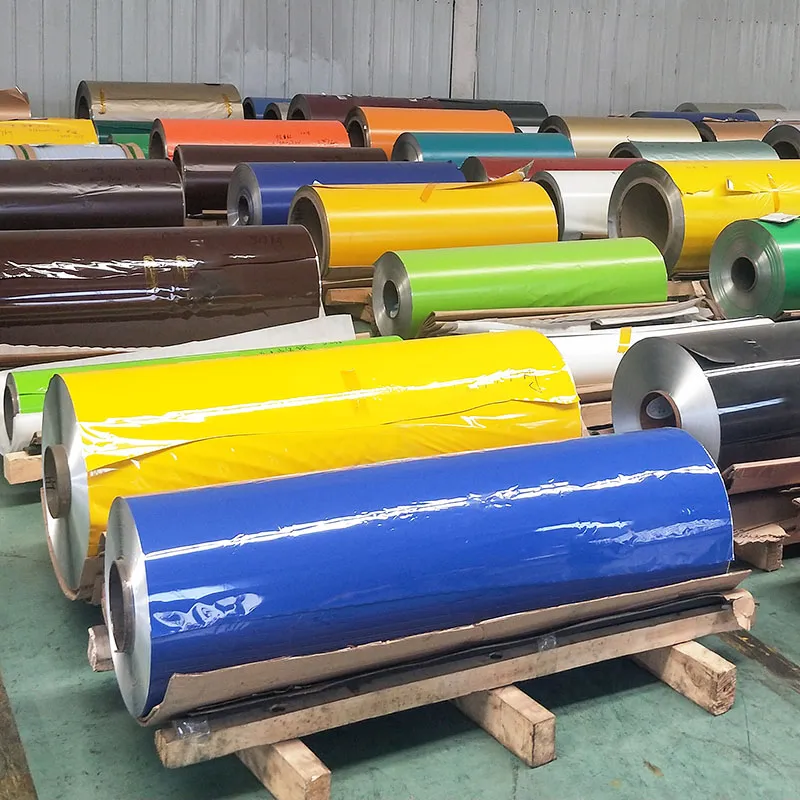Sustainable Building with Aluminum Composite Panels: A Green Choice
2024-08-24
Introduction:
As the construction industry increasingly focuses on sustainability, the choice of materials plays a critical role in reducing environmental impact. Aluminum Composite Panels (ACPs) are emerging as a sustainable option for architects and builders who are looking to create energy-efficient, eco-friendly buildings. This blog will explore how ACPs contribute to sustainable building practices and why they are considered a green choice in modern construction.

The Environmental Benefits of Aluminum Composite Panels:
1. Recyclability:
One of the most significant environmental advantages of ACPs is their recyclability. Aluminum is a highly recyclable material, and the core materials used in ACPs can also be recycled, depending on the composition. This means that at the end of their lifecycle, ACPs can be repurposed, reducing waste and the demand for virgin materials.
2. Energy Efficiency:
ACPs contribute to the energy efficiency of buildings by providing excellent insulation properties. They help regulate indoor temperatures by reducing heat transfer, which can lower the energy consumption needed for heating and cooling. This, in turn, reduces the building’s overall carbon footprint.
3. Lightweight Material:
The lightweight nature of ACPs not only makes them easier to transport and install, but it also reduces the energy required for these processes. Compared to heavier materials like stone or solid metal, ACPs offer significant energy savings during transportation and construction.
4. Durability and Longevity:
ACPs are known for their long lifespan, which means fewer replacements and repairs over time. This durability reduces the demand for new materials and the energy associated with producing and installing them. Additionally, ACPs’ resistance to weathering and corrosion helps maintain their aesthetic appeal, reducing the need for frequent maintenance.
Sustainable Applications of Aluminum Composite Panels:
- Green Building Certifications:
Buildings that use ACPs can contribute to achieving green building certifications like LEED (Leadership in Energy and Environmental Design). ACPs’ energy efficiency, recyclability, and low environmental impact make them a valuable component in sustainable building projects.
- Solar Panel Integration:
ACPs can be used in combination with solar panels to create energy-efficient building facades. The panels’ ability to reflect sunlight and reduce heat gain enhances the overall efficiency of the solar energy system, making the building more self-sufficient and reducing reliance on non-renewable energy sources.
- Ventilated Facades:
ACPs are commonly used in ventilated facade systems, which provide an additional layer of insulation and protection to buildings. These systems help manage moisture and improve thermal performance, contributing to a more sustainable and comfortable indoor environment.
Challenges and Considerations:
- Material Sourcing:
While ACPs offer many environmental benefits, it’s essential to consider the sourcing of materials. Ensuring that the aluminum used in ACPs is sourced from responsible suppliers and that the core materials are environmentally friendly can further enhance the sustainability of these panels.
- Disposal and Recycling:
Although ACPs are recyclable, proper disposal and recycling processes must be in place to maximize their environmental benefits. Builders and contractors should work with recycling facilities that can handle ACPs to ensure that the materials are reused and not sent to landfills.
Conclusion:
Aluminum Composite Panels are a sustainable choice for modern construction, offering a range of environmental benefits from recyclability to energy efficiency. As the construction industry continues to prioritize green building practices, ACPs provide a versatile and eco-friendly solution for architects and builders. By choosing ACPs, you can contribute to creating buildings that are not only visually appealing but also environmentally responsible.


